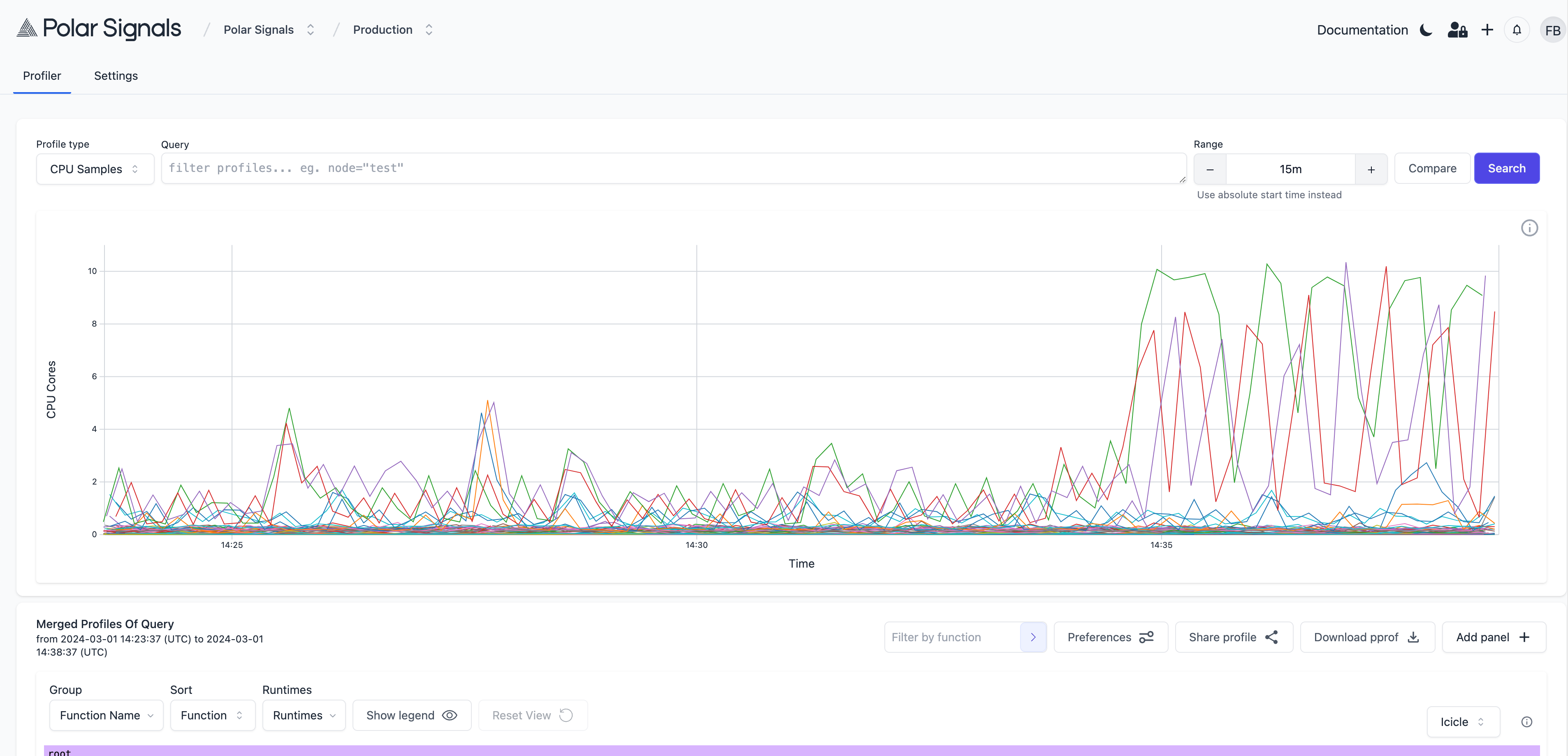A young startup is setting out to help enterprises cut their cloud costs by writing “more efficient” code — and it has secured $6.8 million in fresh funding from notable backers including Alphabet’s GV, Spark Capital and Lightspeed.
Polar Signals, as the company is called, kicked off its seed round back in 2021 with $4 million from GV and Lightspeed, and it’s now closing the round out at $10.8 million.
The problem that Polar Signals is looking to solve is this: Applications consume system resources such as CPU or memory, and the more resources they consume, the more a company’s cloud bill costs — because the major platform providers charge on a consumption basis. One of the areas that impacts resource consumption is the code itself — so the more structurally sound the code is, with fewer lines and redundant operations, the more efficient it will run. And the more efficient it runs, the lower the cloud costs should theoretically be.
“Continuous profiling”
This is where “continuous profiling” enters the fray, a concept that forms part of a broader software monitoring discipline known as “observability,” which is all about measuring a system’s internal state to optimize performance. Continuous profiling reared its head in a 2010 Google research paper called: Google-Wide Profiling: A Continuous Profiling Infrastructure for Data Centers.
At its core, continuous profiling is all about monitoring resource consumption, including down to specific line numbers in a given codebase, identifying bottlenecks that might be causing excessive resource expenditure.

Polar Signals is the main developer behind Parca, a continuous profiling open source project which systematically tracks CPU and memory usage, creating profiles of this data to be queried over time. Parca is Polar Signals’ heartbeat, on which the company is building commercial services, including the recently launched hosted offering Polar Signals Cloud, which removes setup and management spadework and ushers in the usual features that ship with most enterprise SaaS tooling, such as single-sign on (SSO), team provisioning and permission management.
“Our mission is to make the world’s datacenters 10 times as efficient as they are today,” Polar Signals’ founder and CEO Frederic Branczyk told TechCrunch.
Alongside today’s funding news, the company is also introducing AI-powered suggestions to improve code — the user selects a section, taps “optimize with AI” and reviews the suggested amendments. This is available via an early-access program from today.

While cutting costs is one of the main benefits that Polar Signals promises, there are other benefits to the technology too — such as incident response efforts around a DDoS attack, for example, as Polar Signals can provide insights on the attack’s impact and identify which parts of a system are under stress.
“[The number one problem we solve] is helping organizations understand and improve resource bottlenecks — however, what we’ve learned is that the strongest motivation tends to be different than the one we initially thought,” Branczyk said. “Initially, we thought cost-savings would be the strongest motivation, but we’ve learned that [companies are also using it for] incident response (e.g. ‘why did this latency or CPU spike happen’), and we can answer it down to the source code line number — it’s a much stronger motivator.”
The story so far

Polar Signals was founded in 2020 by Branczyk, an ex-Red Hat engineer and leading figure in the Prometheus and Kubernetes ecosystems — experience that positions Polar Signals well to target the enterprise cloud segment.
Since its formal commercial launch back in October, the company has amassed more than a dozen paying customers, including Vercel, Materialize, Canonical and Weaviate — and this is something that its fresh cash injection will help it double down on, as it seeks further scale in the coming months and years.
“Our pipeline is so large we can’t even close them [new customers] quickly enough, which is also why we’re planning on growing the team in this direction significantly,” Branczyk said.
At the time of writing, Polar Signals claims 11 employees with experience at companies including AWS, Meta, Red Hat and HashiCorp. And although the company is incorporated in the U.S., only two of its employees are based there — the bulk of its workforce are employed by a subsidiary in Germany, where Branczyk himself is based, and through global HR firm Remote.com in Spain, the U.K., Poland and India.
Aside from lead investor Spark Capital, GV and Lightspeed, the company’s latest cash injection included contributions from an array of institutional and angel investors such as Haystack, Lorimer and Guillermo Rauch — CEO of Polar Signals’ customer Vercel.































Comment